n Banu Haqim
The Banu Haqim (previously named Assamite) provide some good clan cards and multiple strategies usually revolving around for stealth. Its main archetype, Haqim Royalty, has many variations.
The legacy Assamite D and their Quietus discipline, can be found on a separate page: .
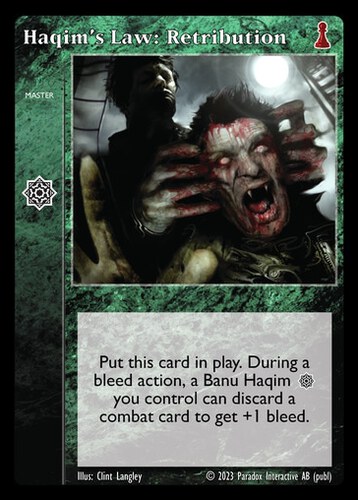
Haqim's Law: Retribution
played in 41 decks,
typically 2-6 copies
A great master card for combat-oriented Banu Haqim n decks. It enables cycling combat cards for bleed enhancement, a great way to make sure that the combat cards, even in high number, do not jam the hand. It also synergizes well with multi-types cards like Swallowed by the Night and Resist Earth's Grasp.

Priority Contract
played in 35 decks,
typically 2-4 copies
A strong Trifle enabling both rush and bloat, even though it is limited to targeting the prey. Always included in combat-able Banu Haqim decks.
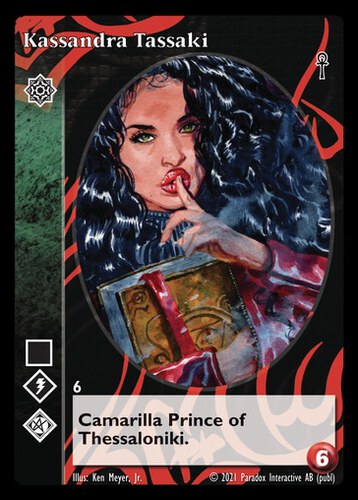
Kassandra Tassaki
played in 34 decks,
typically 2-3 copies
Her relatively low cost combined with the Prince title (enabling Second Tradition: Domain and Parity Shift), makes her the most played vampire of the clan.

Warmaksan
played in 34 decks,
typically 1-2 copies
Such a cheap Prince is always a good deal. Seen both in Banu Haqim n and multiclan Royalty decks.
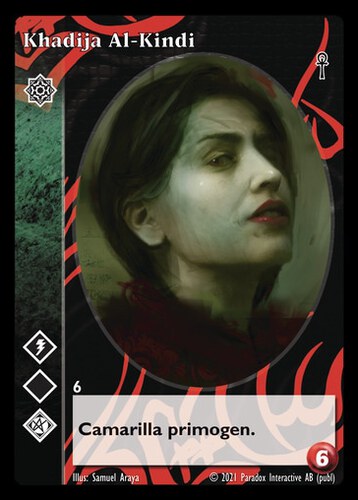
Khadija Al-Kindi
played in 31 decks,
typically 1-2 copies
Not so many group 6 Banu Haqim have all clan disciplines at superior, a solid vampire.
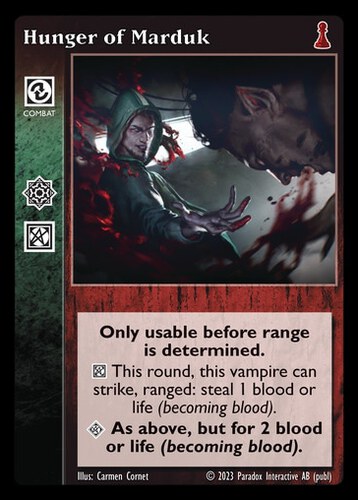
Hunger of Marduk
played in 29 decks,
typically 8-15 copies
A great combat cards and a direct upgrade from Theft of Vitae. It enables to use the strike multiple times in the same round, allowing Banu Haqim n to use their fully, with additional strikes from Pursuit, Blur or Quickness for example.
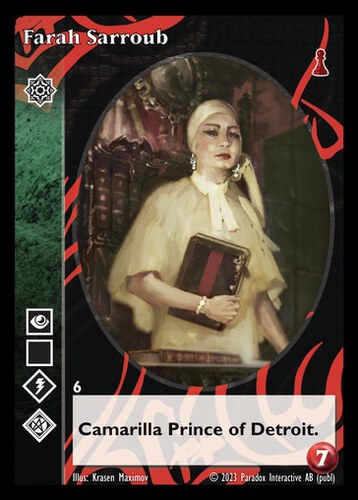
Farah Sarroub
played in 22 decks,
typically 2 copies
Another group 6 Banu Haqim n Prince, a tad more expensive with no big upside, but still useful.
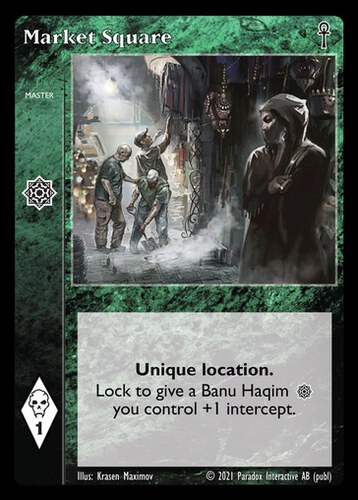
Market Square
played in 25 decks,
typically 1 copy
An excellent permanent intercept at low cost. Used in all Banu Haqim decks when blocking is an option.
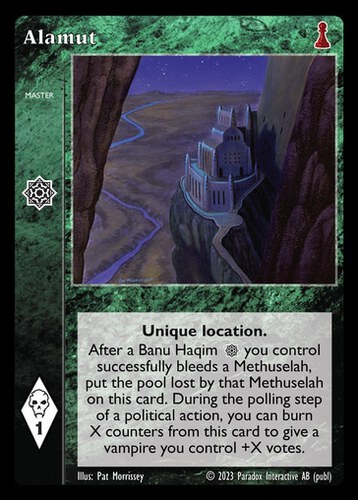
Alamut
played in 19 decks,
typically 1-2 copies
An excellent vote enhancer at a fair cost for any archetype. It is played for additional votes in political decks, but also as a defensive tool against political actions in other decks.
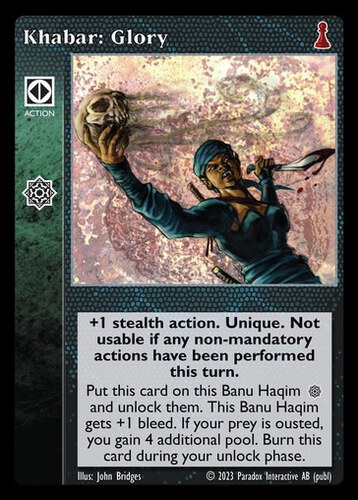
Khabar: Glory
played in 18 decks,
typically 1-3 copies
A bleed enhancer with a 4 pool bloat bonus if timely played. Most Banu Haqim decks include one or two of these for the lunge.
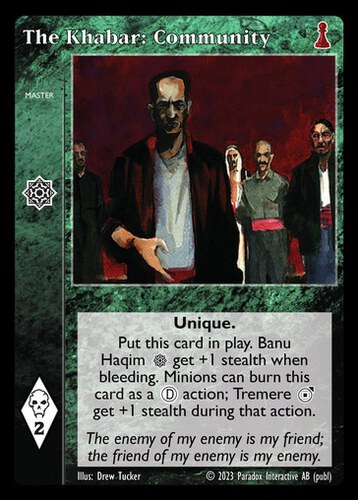
The Khabar: Community
played in 14 decks,
typically 1-2 copies
A nice bonus for the bleed. Princes can help defend it with Second Tradition: Domain.
